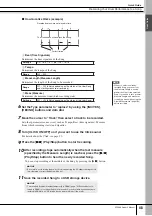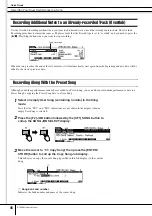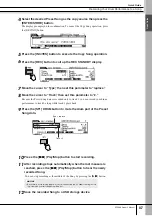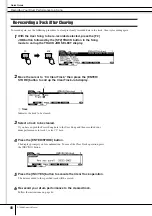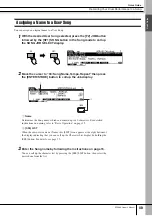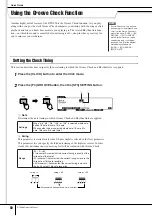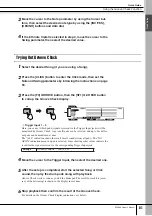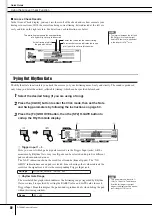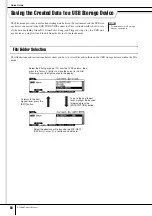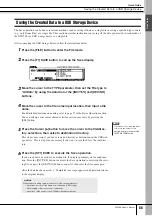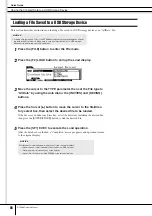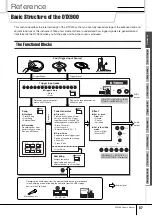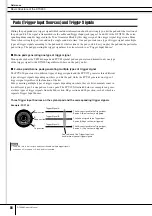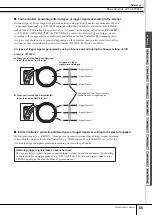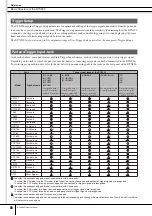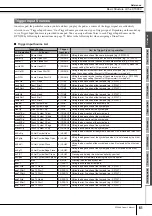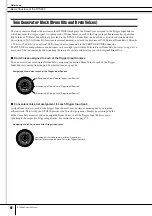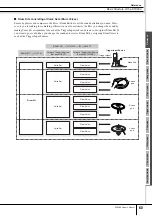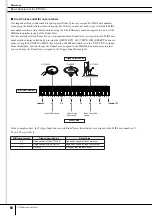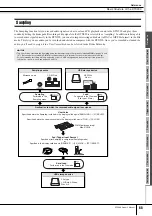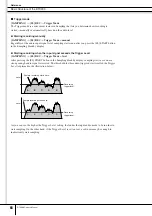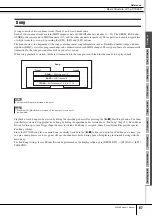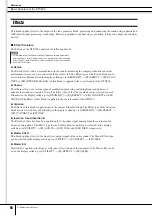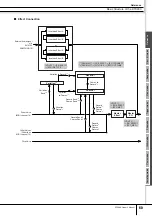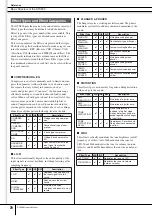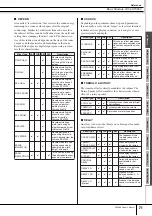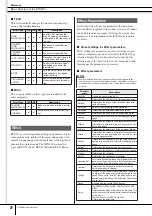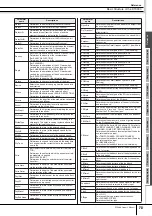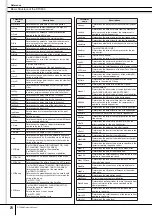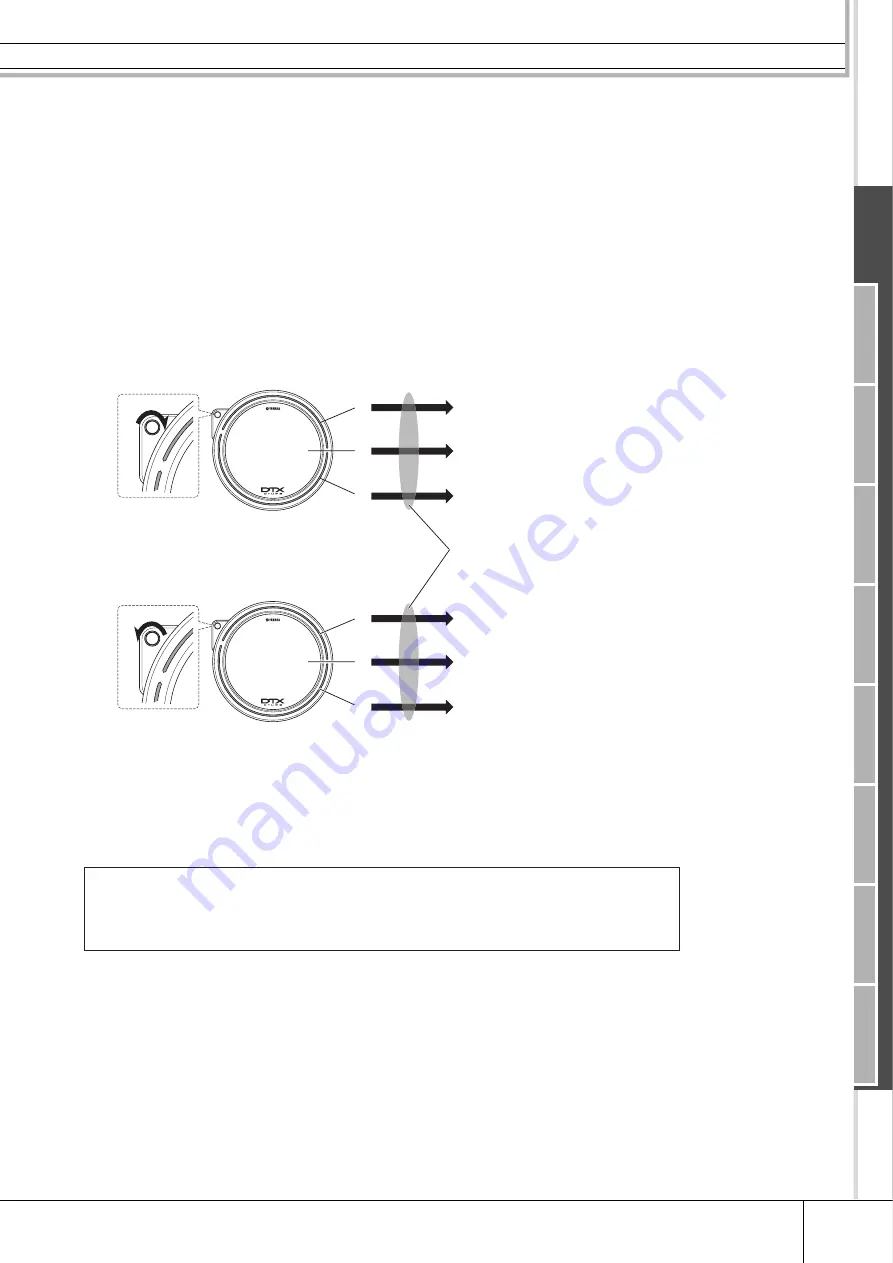
Basic Structure of the DTX900
Reference
DTX900 Owner’s Manual
59
Dr
um Kit mode
Ref
erence
Song mode
Clic
k mode
Tr
igger mode
File mode
Utility mode
Chain mode
Sampling mode
■
Pad Controllers generating different types of trigger signals according to the settings
Different types of Trigger Signal are generated also by using the Pad Controller of a drum pad. When a
3-zone snare drum pad (e.g., XP120SD) equipped with a Pad Controller is connected to the SNARE
jack and the Pad Controller Type parameter is set to “snares” in the display called up via [DRUM KIT]
→
[F5] PAD
→
[SF1] PADCTRL, the XP120SD can generate two different types of trigger signals
according to the snappy setting’s on/off status controlled by the Pad Controller. By combining these
two types with the three types generated depending on the particular zone you hit, a total of six differ-
ent types of trigger signals can be generated from the XP120SD. For details, see below.
Six types of trigger signals generated by using a 3-zone pad and turning the Snappy setting On/Off
■
Hi-Hat Controllers generating different types of trigger signals according to the pressure applied
Hi-Hat cymbal pads (e.g., RHH135, 2-zone pad) can generate various types of trigger signal according
to how deeply you press the Hi-Hat Controller (e.g., HH65 connected to the RHH135) as well as the
two different types of signals generated depending where on the pad you hit.
Obtaining trigger signals from an acoustic drum
You can get trigger signals from an acoustic drum or similar percussion instrument by installing
an appropriate drum trigger product (e.g., DT10 or DT20). This lets you trigger sounds on the
DTX900 by playing the acoustic drum or percussion imt.
A
C
B
A
C
B
Six types of trigger
signals for a single pad
Example: XP120SD
●
When you turn the Pad Controller right
to set the Snares On/Off to “on”:
●
When you turn the Pad Controller left
to set the Snares On/Off to “off”:
Trigger Signal B
Trigger Signal C
Trigger Signal A
One cable and One Trigger Input jack
handle six types of trigger signals.
Trigger Signal B’
Trigger Signal C’
Trigger Signal A’

